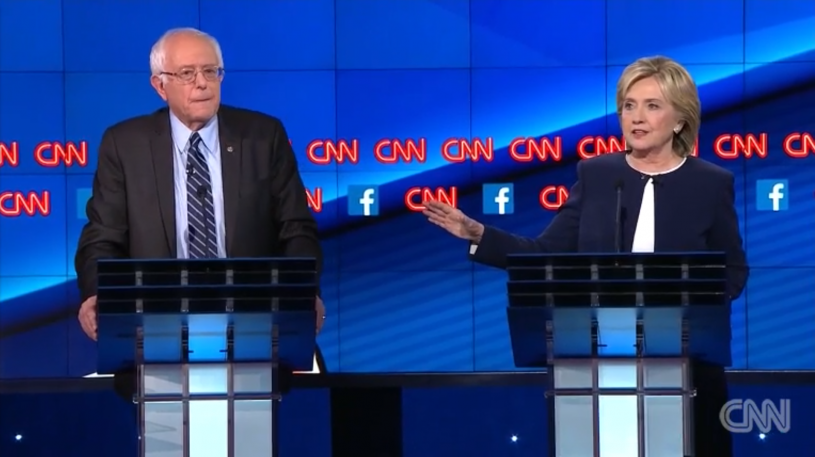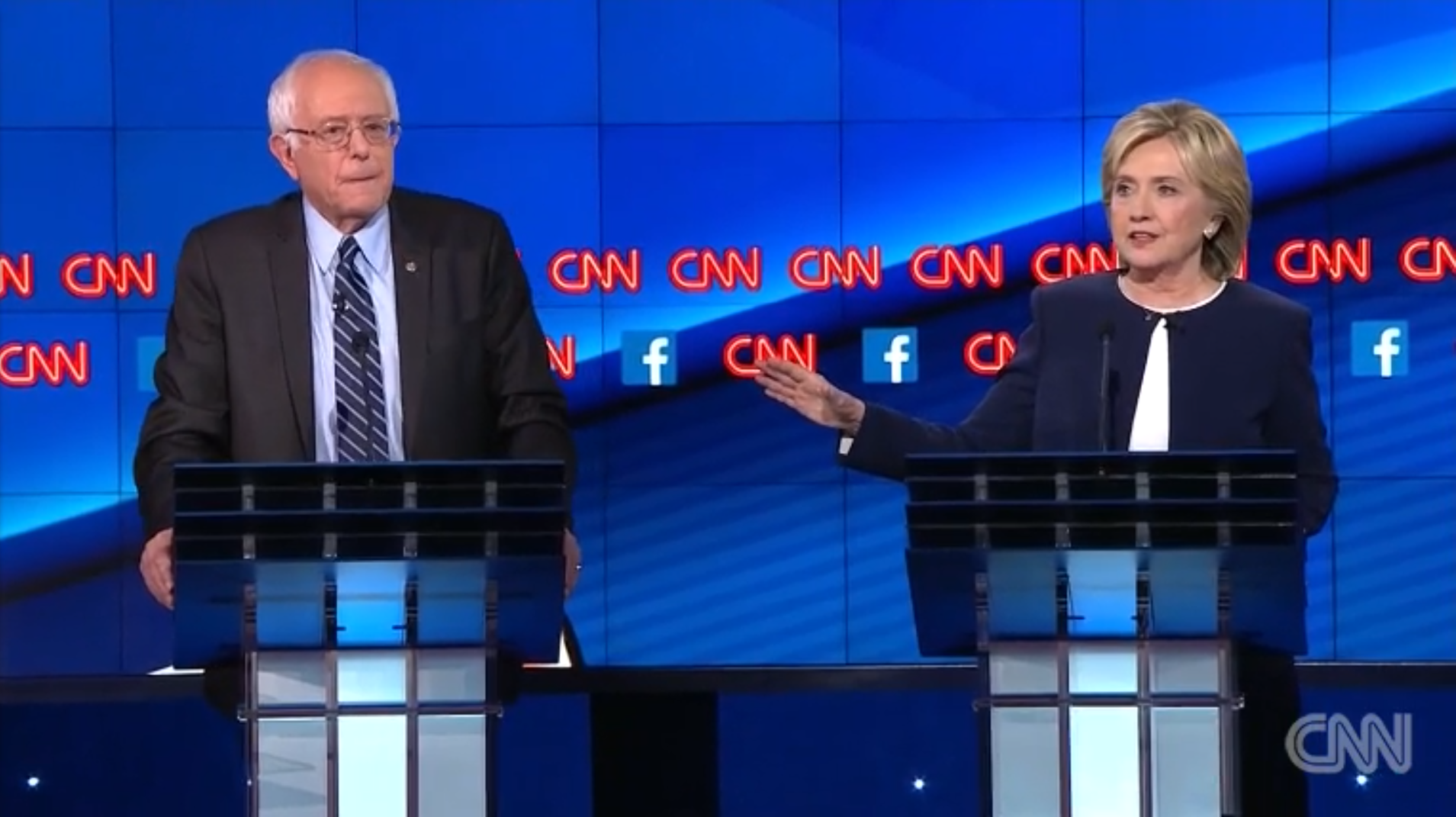
(Image: CNN)
The first Democratic presidential debate differed immensely in substance and tone from the two Republican debates held thus far as candidates acknowledged, as Bernie Sanders put it, that they were “sick and tired of hearing about [Hillary’s] damn emails” and ready to dig into the serious issues of our time.
While the candidates agreed on many mainstay Democratic policies ranging from the need to address skyrocketing student debt and climate change to their support for guaranteed maternity leave, they did vary in their positions on some very key issues. Here are the top seven issues that split the candidates.
Capitalism
After confirming that Bernie Sanders was indeed serious about not being a capitalist, CNN moderator Anderson Cooper clarified if any other candidate would like to take a stance against capitalism. No one budged. Sanders clarified his views saying, “Do I consider myself part of the casino capitalist process by which so few have so much and so many have so little by which Wall Street’s greed and recklessness wrecked this economy? No, I don’t.”
Wall Street
Martin O’Malley and Bernie Sanders laid out firm plans for dismantling the “casino, speculative, mega-bank gambling” that takes place on Wall Street, as O’Malley put it. Hillary claimed to have a tougher plan to regulate the banks, but stopped short of calling for breaking up the Too Big To Fail banks. It’s hard to ignore the fact that the bulk of Clinton’s lifetime campaign funding comes directly from Wall Street. None of the other four candidates made this point on stage, but Sanders hit a major applause line saying, “Congress does not regulate Wall Street, Wall Street regulates Congress.”
The Greatest National Security Threat to the U.S.
When asked what the greatest threat to national security is, Lincoln Chafee cited the chaos in the Middle East, Jim Webb cited China and the Middle East, both Martin O’Malley and Hillary Clinton cited the spread of nuclear weapons in Iran and elsewhere. Bernie Sanders distinguished himself from the pack citing climate change as our greatest threat, saying unless we act, “the planet that we’re going to be leaving our kids and our grandchildren may well not be habitable.”
Gun Control
The focus of the gun control portion of the debate was on Senator Sanders’ record, having voted against the Brady Bill. He defended his record as a leader from a rural gun owning state who’s taken a strong stance on gun control in recent years. Somewhat awkwardly, he asserted in the third person, “Bernie Sanders has a D-minus rating from the NRA.” While all the candidates agreed on the need for instant background checks and closing the gun-show loophole, Secretary Clinton made clear that she thought Sanders was not strong enough on guns.
Iraq War
Bernie Sanders called the war in Iraq “the worst foreign policy blunder in the history of the United States,” a point Lincoln Chaffee echoed in his remarks. Hillary Clinton, who voted in favor of the war, attempted to show her good judgment as shown by her appointment to Secretary of State, but did not explain why she supported the war in the first place. The candidates also split on the prospect of enforcing a no-fly zone in Syria, an idea Clinton supports and Sanders does not.
Mass Surveillance
Lincoln Chafee defended his support for the PATRIOT Act, the legislation that led to the creation of the modern surveillance state, saying it was a 99 to 1 vote. Sanders was quick to point out that he was only candidate on stage to vote against the legislation, although he was in the House of Representatives at the time, not the Senate. He went on to say that he would shut down the mass surveillance program at the NSA. When asked about NSA whistleblower Edward Snowden, Sanders and Chafee were the only candidates to support varying levels of leniency. O’Malley and Clinton both called for criminal proceedings as Clinton stated Snowden must “face the music.” Jim Webb chose not to take a position, claiming it was an issue for the courts.
Legalizing Marijuana
The two top candidates split on their views about legalizing marijuana as Sanders said he would support legalization while Clinton said she would not. Both candidates clarified they did not want to see non-violent drug offenders in prison, but Clinton did not specify how she would reduce this without changing federal drug laws. The three other candidates did not weigh in on this issue.
We can look forward to hearing more about where the candidates’ positions differ on issues in the upcoming debates, where the focus will likely shift more towards taxes, a topic barely discussed during this debate. While the candidates overlap on many issues, clear differences in policy and politics divide them, giving voters a clearer picture of who most closely represents their views entering into the campaign season ahead.
